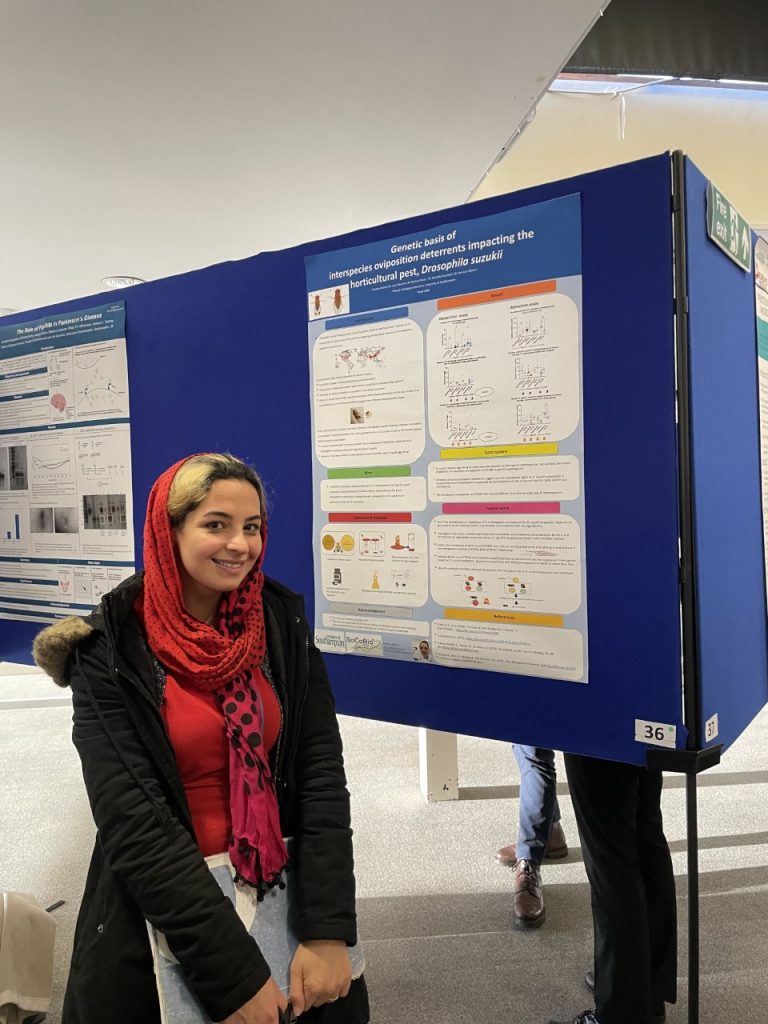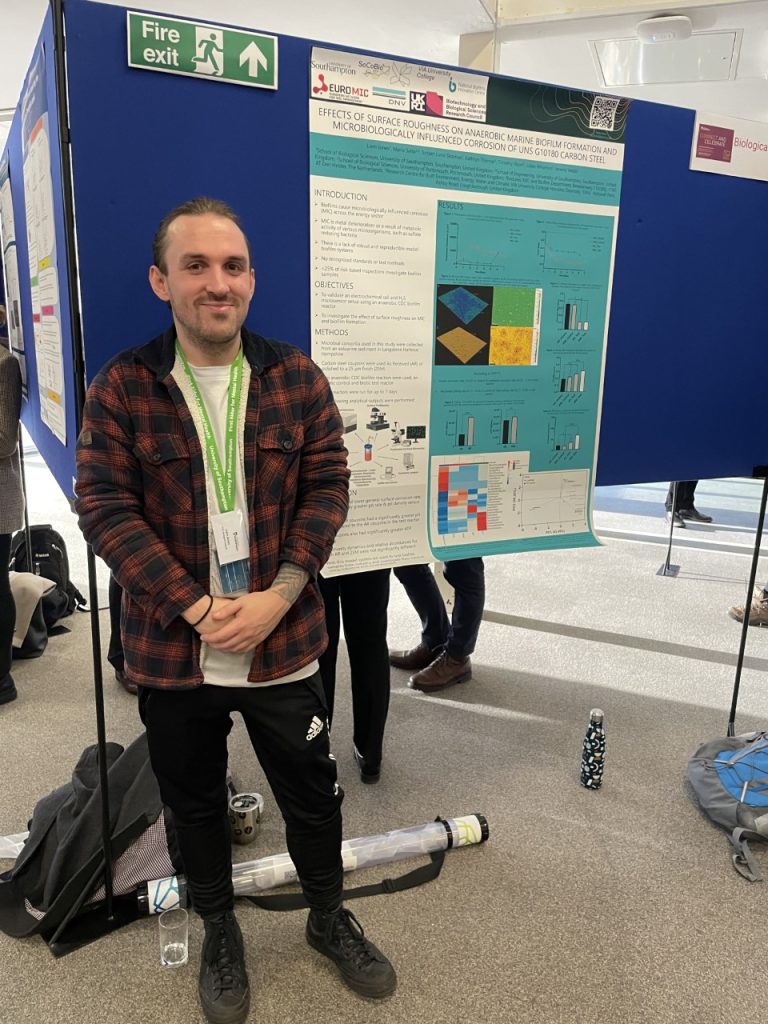It’s important for PhD students to be able to communicate their research to others, particularly communicating to someone outside their field. Throughout a PhD students have the opportunity to practice this skill through presentation of posters within their University, at conferences and at SoCoBio DTP Events such as the Annual Research Conference. Two SoCoBio students, Fardina Rahimi and Liam Jones, recently attended the University of Southampton’s Doctoral College PGR Poster Showcase event. This was an event to learn about the great research happening at Southampton, meet other PhD researchers and maybe win a prize! I was delighted to catch up with them at this event and see SoCoBio’s research being showcased.
Why do PhD students need to be good at presenting their research? Presenting research findings provides students with the opportunity to gather feedback from stakeholders, experts and others with a professional or academic interest in their research subject. This will have a positive impact for the student’s future research as well as developing networks for future collaboration and cooperation. In addition, it’s an opportunity for students to explain why their research question is significant and helps them develop strong connections with their audience.
Presenting research will also pass on the benefits to other researchers, professional practitioners and the wider community. Public awareness is important in successful communication. Research is of great value for society and future generations as the impact of it affects everyone. By researchers ensuring the public understand what they are doing they can prevent misinformation from arising and help continued support for their research.
In the third year of the SoCoBio programme students attend a Science Communication summer school which aims to develop their research communication skills. Students will undertake workshops using technologies to hone their interview skills and receive feedback from media experts, and training in ensuring that science is accessible to the non-expert audience (e.g. policymakers, funding agencies, stakeholder partners, the media and members of the public).

Fardina Rahimi Year 3 SoCoBio Student 
Liam Jones Year 3 SoCoBio Student
